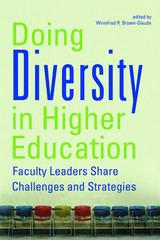
The rich variety of colleges and universities included provides a wide array of models that faculty can draw upon to inspire institutional change.
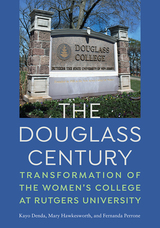
The Douglass Century celebrates the college’s longevity and diversity as distinctive accomplishments, and analyzes the contributions of Douglass administrators, alumnae, and students to its survival, while also investigating multiple challenges that threatened its existence. This book demonstrates how changing historical circumstances altered the possibilities for women and the content of higher education, comparing the Jazz Age, American the Great Depression, the Second World War, the post-war Civil Rights era, and the resurgence of feminism in the 1970s and 1980s. Concluding in the present day, the authors highlight the college’s ongoing commitment to Mabel Smith Douglass’ founding vision, “to bring about an intellectual quickening, a cultural broadening in connection with specific training so that women may go out into the world fitted…for leadership…in the economic, political, and intellectual life of this nation.” In addition to providing a comprehensive history of the college, the book brings its subjects to life with eighty full-color images from the Special Collections and University Archives, Rutgers University Libraries.
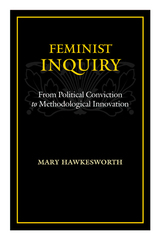
Feminist Inquiry provides scholars and students with a comprehensive guide to methodological issues within feminist scholarship. Mary Hawkesworth presents lucid introductions to key philosophical debates about the nature of knowledge, an original account of feminist scholarship’s contributions to these debates, and a sophisticated assessment of the analytical tools that feminist scholars have created to improve understandings of the world. Drawing upon contentious debates concerning the incidence of rape, public support for reproductive rights, affirmative action, and welfare reform, Hawkesworth demonstrates how seemingly abstract questions about the nature of knowledge have palpable effects on the lives of contemporary women and men.
Feminist Inquiry makes epistemological debates—previously the exclusive preserve of philosophers—accessible to a wider audience, and demonstrates the practical and academic importance of these issues.
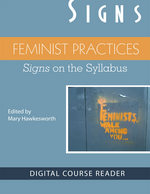
A classroom resource for instructors that includes full syllabi and teaching modules, Feminist Practices will be of interest to anyone who teaches in women’s, gender, and sexuality studies. Feminist Practices is intended for use in classrooms and to spark creative ideas for teaching a diverse array of topics.
What makes a practice feminist? What is at stake in claiming the feminist label? Whether within a university context or in larger national and global ones, feminist projects involve challenging established relations of power (critique), envisioning alternative possibilities (theory), and employing activism to change social relations. By taking diverse forms of feminist practice as its focal point, this course reader investigates how to study the complexity of women’s and men’s lives in ways that take race, gender-power, ethnicity, class, and nationality seriously. Feminist Practices also shows how the production of such feminist knowledge challenges long-established beliefs about the world.
Topics covered include
• Gendered labor,
• Commercialization of sexuality and reproduction,
• Love and marriage in the twenty-first century,
• Violence against women,
• Varieties of feminist activism, and
• Women’s leadership and governance.
Feminist Practices draws upon articles published in Signs: Journal of Women in Culture and Society to explore the nature of feminist practices in the twenty-first century and the range of issues these practices address. Organized thematically the collection captures the complexity of a global movement that emerges in the context of local struggles over diverse modes of injustice.
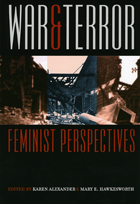
READERS
Browse our collection.
PUBLISHERS
See BiblioVault's publisher services.
STUDENT SERVICES
Files for college accessibility offices.
UChicago Accessibility Resources
home | accessibility | search | about | contact us
BiblioVault ® 2001 - 2024
The University of Chicago Press









